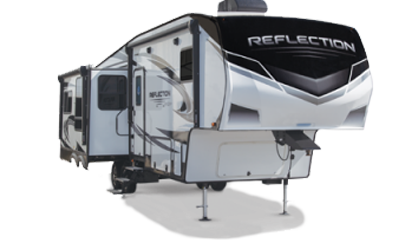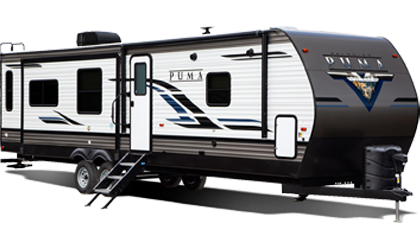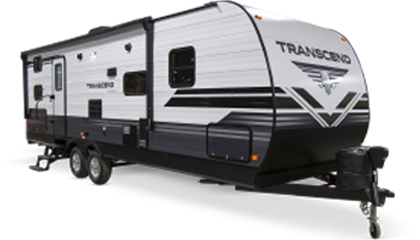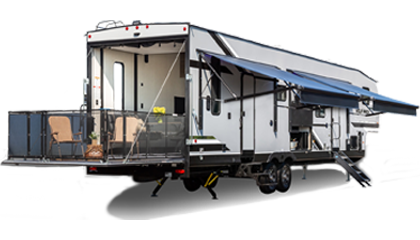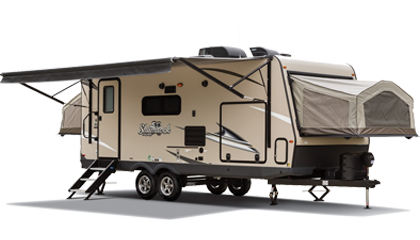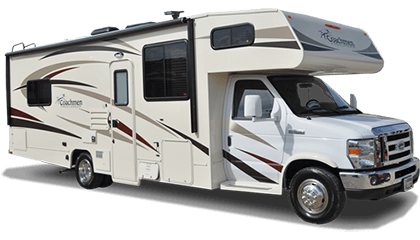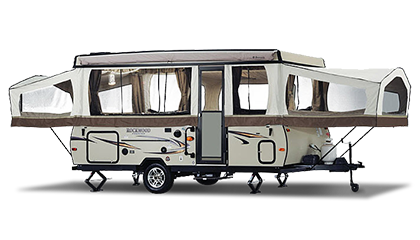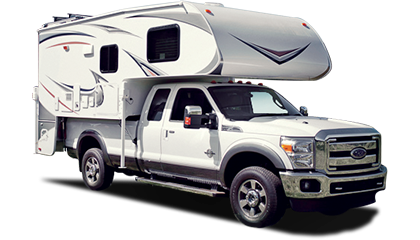RV Towing and Parking Tips
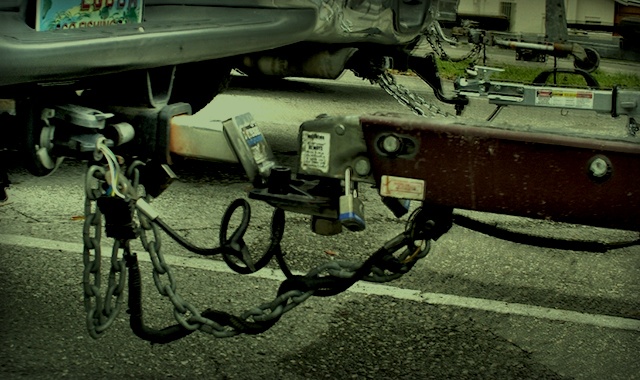
You’ve been pondering the idea of buying an RV for a while now. You’ve gone camping a couple of times in your friends rig, and you really liked the experience. You’re just starting to do some research on what RV is right for you. Should you go with a fifth wheeler? What about a travel trailer? There are so many options to choose from!
Even with an array of options and the exciting picture you imagine of you and your family traveling down the road with a new RV, one thing keeps you from going to the lot and picking out the RV of your dreams: you’re worried about towing and storing your RV.
Towing and storing your RV is an important aspect to think about when you are considering purchasing a rig. Having assets and a plan for both towing and storing your RV is important to maintain and care for your RV properly. Let’s say you don’t have space for it at your house, and you aren’t sure if your vehicle is capable of towing, should you still buy the RV before figuring these things out?
The answer is yes. The truth of the matter is that concerns about both towing and storage can be solved after you make your RV purchase, so you know exactly the requirements needed. How heavy is the RV? How long is it? What kind of hitch should I be using? These are all things that you can solve once you have a clear idea of the RV you want to purchase. Finding the right RV for your lifestyle and needs should always be first on your list. All other concerns will fall into place once you’ve made your decision and know exactly what you need.
TOWING
How are you possibly going to tow your new majestic RV? If you think you have a truck or similar vehicle that is capable of towing an RV you’re interested in, it’s time to do some number checking. The last thing you want is to tow your RV with a vehicle that is not capable. Not only is that a major safety hazard, but it’s also very bad for your vehicle.
This concern is a common one. It’s a pretty logical first question to ask. Logistically, how are you going to haul your RV? Once you know what RV you plan on buying, make sure you take a look at the weight sticker found on the unit. Take this number, and estimate how much cargo you will be adding while being mindful of the GVWR (Gross Vehicle Weight Rating).
Along with GVWR, you need to look into the maximum tow rating, gross axel weight rating, and tongue rating. These are just a few of the elements you need to look for. For all of our advice on weight and towing, take a look at this article.
Now that you have the proper vehicle to tow your RV, you might be thinking about the different safety precautions you need to take while driving with your RV. The truth is, driving with a trailer is much different than driving a regular vehicle. You need to be more cautious, slower with braking, and very careful when backing up and maneuvering small spaces and corners. But don’t worry! With a little practice, you’ll be driving the RV like a pro in no time.
PARKING
Don’t let storage hold you back from buying the RV of your dreams. When you do some research, you will find that there are plenty of paid storage options available to keep your rig safe and sound while you’re not in it. If you’re unable to store your RV at your home, you can choose to park your vehicle at a storage lot. When you do this, you’re making the decision to trade convenience for security and space. Most storage lots feature well-lit parking lots and an abundance of security cameras. Depending on the type of lot you choose, your vehicle can also be protected from any severe weather that may come your way. For all of our tips on storage, check out this post.

